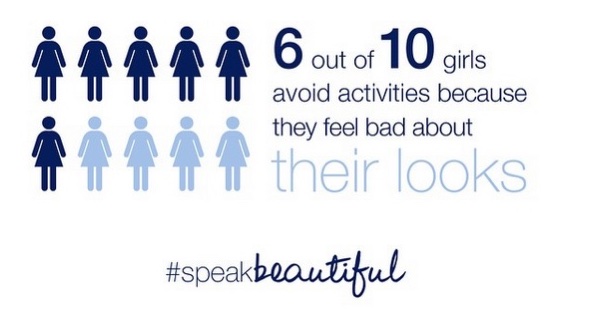Key Points
- The Taliban has ordered the closure of beauty salons, including hairdressers, across Afghanistan.
- Observers say the move is another step in the group’s ‘war against women’.
- A medical expert claims the situation will further erode women’s mental health.
In a continuation of imposing restrictions on Afghan women, the Taliban recently banned hair and beauty salons in Afghanistan with the closure taking effect as of 25 July.
The Taliban has justified the decree by claiming such premises offer services which are forbidden in Islam and cause economic hardship for husbands and their families.
On 19 July, dozens of Afghan women, mostly employees of hair and beauty salons, protested against the decision on the basis that it would leave families without incomes.
‘Loss of dignity, pride’
Dr Nooria Mehraby is a senior clinician and clinical trainer at STARTTS (NSW Service for the Treatment and Rehabilitation of Torture and Trauma Survivors).
She said that throughout history, Afghan women had “played a significant role” and were “important contributors” to their society.
However, the current conditions had resulted in Afghan women experiencing a profound loss of identity, pride and dignity which was leading to social isolation and mental health challenges such as anxiety and depression, she said.
“This (situation) puts Afghan women at added risk of suicide, low self-esteem, loss and grief over losing their status in society as they are no longer seen to exist under a male-dominated Taliban government,” Dr Mehraby said.
“Furthermore, many Afghan women have lost their incomes, especially those who are the sole bread winners for their families, (and) they are struggling with the basic tasks of survivors, which further deteriorates their mental health and risk of suicidality.
“Lack of access to physical and mental health support further deteriorates their physical and mental well-being.”
Dr Mehraby said that the act of “violence and human rights violation” against Afghan women “has been extensively documented in international publications”. However, there was inadequate support for “Afghan women who suffer from the darkest side of humanity”, she said.
“I urge international organisations not to forget the current humanitarian catastrophe in Afghanistan, in particular the plight of Afghan women,” she said.
“We need more funding to support Afghan women financially as well as providing and sponsoring online educational courses and mental health support.
“The intake of Afghan women to resettle in western countries should increase under the women at risk visa category so more Afghan women whose lives are at risk from the Taliban are rescued and resettled in western countries such as Australia.”
The closure of beauty salons across Afghanistan as of 25 July will severely impact the mental health and well-being of women, according to Dr Mehraby. Source: AP / Rahmat Gul/AP
‘They have a problem with women working’
Maryam* is the owner of a beauty salon in Kabul and has been working in the industry for about two years.
She said the Taliban had “a problem with women working” and the order was solely about stopping them from doing so.
“We saw the decision on social media and thought that it could be false. The next day, an authorised person came to our salons and confirmed that it was true,” Maryam said.
She said since the verdict was announced, “there was not a day that (the girls working in the salon) did not cry.”
“They [Taliban] know that this environment is only for women and no men are allowed to go inside the salon,” Maryam said.
“In the past, (husbands) were allowed to go inside the salon in some conditions but, since the Taliban came, even they were not allowed to go inside.”
Maryam said that working in hair and beauty salons provided a source of income for thousands of women and banning women from that activity would not only have a financial impact on Afghan women but would impact their mental health and the well-being of those who worked in the beauty industry.
“I have three children, I pay rent and I have household expenses, the salary of the government job is not enough for these costs,” she said.
“With this business [beauty salon] that I had, I could pay my children’s fees and cover household expenses.
“Not only (have people like me lost our) source of income, but (we) will also suffer from depression and perhaps from various other health issues.”
‘Uncertain when the war against women will end’
Mohib Iqbal, President of the Afghan National Council Australia, told SBS Pashto that the decision to ban beauty salons could have devastating consequences for female-led private sector enterprises.
“This is unusual in that way. I think if the Taliban extend their bans on women’s work and education, this will be catastrophic for women-operated private sector businesses,” Mr Iqbal said.
“We have already heard that up to 60,000 women will lose income across the country. I believe, and given the humanitarian crisis in the country, this will have a significant impact on the livelihood of tens of thousands of families.”
Mohib Iqbal, President of the Afghan National Council Australia. Source: Supplied
Mr Iqbal said that “it is very difficult to say” when the Taliban’s war against Afghan women will end and that it was most likely they would “come out with more similar bans in the private sector”.
“Every time we think that this might be the last decree to limit women’s rights in the economy and society, something new comes out,” he said.
“Taliban messaging on education has also changed from the fact that this is a temporary ban, to not discussing this at all. Taliban leaders who used to speak against the ban and assure people this will go away one day, aren’t talking (anymore) or coming out with those types of statements.”
* Name protected for security reasons
If you need support with mental health, you can contact lifeline on 13 11 14 or Beyond Blue on 1800 22 46 36. If you need an interpreter, call 13 14 50.
supports people from culturally and linguistically diverse backgrounds.






